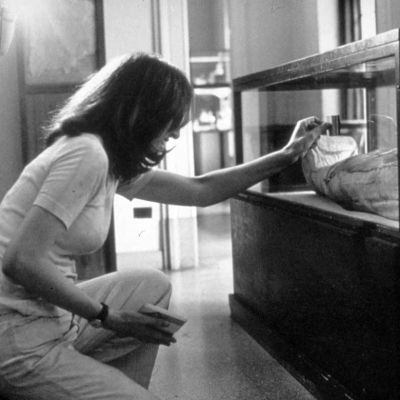work
A short movie with a twist ending, Belle de Jour (meaning ‘Beauty of the Day’, and this one is not the 1967 film by Luis Buñuel) begins by showing a stereotypical middle-class Indian woman who goes to work after taking care of her household.
Written in one sitting in Philadelphia, Ukeles’ manifesto was a manifestation of the rage she felt when she was pregnant with her first child and a male mentor proclaimed, “Well, Mierle, I guess you know you can’t be an artist now.”
One morning at the programme, I found he was ignoring me. I was also busy with my assigned work so I was not able to follow up with him until the break. During the break, he came and sat next to me, came closer and suddenly kissed me on the cheek.
काम करने वाली जगहों पर महिलाओं का यौन उत्पीड़न एक कड़वी सच्चाई है। यह महिलाओं के अस्तित्व, उनकी सेहत और श्रम को चोट पहुंचाता है; साथ ही उन्हें रोज़गार छोड़ने तक पर मजबूर कर देता है। महिला श्रमिकों को यह मौका ही नहीं मिलता कि वो पुरुषों की तरह बराबरी से अपना योगदान दे सकें। इस गैर-बराबरी की वजह से संस्थाओं, फैक्ट्री, और कम्पनिओं और इन जैसी तमाम काम करने की जगहों को, समाज और देश की अर्थव्यवस्था को काफ़ी नुकसान हो रहा है।
This photo feature gives us a glimpse into the lives of women from around the world at their diverse places of work: “Teachers, farmers, businesswomen, politicians, mothers, law enforcers – women and girls contribute every day in many visible and invisible ways.”
इन प्लेनस्पिक के इस काम व यौनिकता के मुद्दे को सुनने के बाद पहला विचार मन में आया कि मैं कार्यस्थल पर होने वाली यौन हिंसा के बारे में लिखूंगी। फिर ऑफिस में रोमांटिक रिश्तों व लव स्टोरी के बारे में याद आया जो हम सब अपने काम के आसपास देखते या सुनते आये हैं और यह बॉलीवुड फिल्मों का भी पसंदीदा मुद्दा रहा है। मुझे ये बड़ा ही रोमांचक लगा, और जब मैंने लिखना शुरू किया तो एक सवाल मेरे दिमाग में आया – क्या कार्यस्थल पर इस मुद्दे से सम्बंधित कोई नीति है?
“How different it would be if for a moment health care providers could feel what we feel when we go to a hospital and are challenged…”
And so, the women sex workers of RedTraSex (Network of Women Sex Workers from Latin America and the Caribbean) developed Ponte en Nuestros Zapatos (re-edited 2015). Now, reaching out to a wider community, is the brand new English version Walk in our Shoes: Good Practices Guide for Health Care Staff (2016, translated by Alejandra Sardá-Chandiramani). Yes, it is so brand new that it is not up on their website as yet, though we have permission to use it here.
If there are hordes of reasons for having sex, and all kinds of activities that count as work, why is it that the act of performing sexual services cannot be accepted as legitimate work?
Liz Hilton illustrates the puzzle in a booklet published by Empower Foundation, Thailand.
Abortion and sex work share the distinction of being topics on which even feminist activists sometimes find it difficult to remain non-judgmental, confronting feminists with the question: to what lengths are we really willing to go to respect and enable women’s choices and bodily autonomy?









